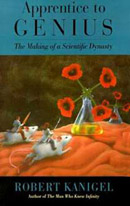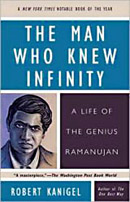Robert Kanigel | On An Irish Island
thinking about the pace of modern life
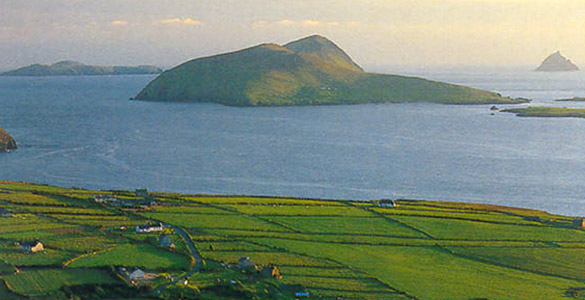
"The eternal oppositions remain: To live challenging lives that don’t grind us down with their pace and pressure. To sample the best of the ‘simple’ things while enjoying the benefits of a complex and sophisticated society. To exult in the beauty of wild places without destroying them through use. To embrace the wisdom of our parents and grandparents while adapting to new situations and passing on new wisdom to our children."
— from On An Irish Island, by Robert Kanigel
An ongoing exploration about contemporary life
An award-winning science writer and author of the acclaimed biography The Man Who Knew Infinity, Robert Kanigel has spent his career exploring the evolution of society through a series of unique lenses that reveal what we have gained from modernity—and what we’ve lost.
Whether detailing the life of the world’s first efficiency expert (in The One Best Way), or the history of imitation leather (in Faux Real), Kanigel zeros in on the roots of our modern way of life, providing mirrors with which to see ourselves. “I’ve long been preoccupied with the pace of modern life and what it does to us,” said Kanigel, a Professor of Science Writing in the School’s Program in Writing and Humanistic Studies.
On An Irish Island | the lens of a traditional fishing community
In his forthcoming book, On An Irish Island, Kanigel examines the path not taken—a communal life free of modern technology—to see what we have all traded in for today’s fast-paced existence.
The Great Blasket Island, a small rocky outcrop visible from Ireland’s Dingle Peninsula, had its heyday in the early 20th century, when the island’s fishing village still had about 150 residents, and a series of linguists and writers—most notably J.M. Synge (author of Playboy of the Western World)—came to the island to study the Irish language and culture in its native form.
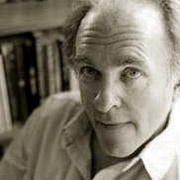
"Nobody’s going back to live the way people lived on the Great Blasket Island. It was a brutally hard life. But I don't think that means we 21st century people can't stop running around for a minute to think back. If my readers came away stopping to think about these issues and reflect on their own lives, I'd be pleased."
— Robert Kanigel, MIT Professor of Science Writing emeritus
A hard way of life, rich in human connections
The island had no plumbing, no priests, no shops, and no electricity. Most residents were illiterate, and all human communication—from simple gossip to news of an approaching storm—took place in person. The islanders entertained themselves with music, dancing, and storytelling.
“The visiting scholars fell in love with the life there... They found something they didn’t expect—a life deeply appealing to them,” Kanigel said. “This was like an antidote to modern life.”
The scholars recorded native stories and poems, wrote of their own experiences, and encouraged the locals to record theirs, with the result that a rich body of literature emerged very quickly from this one tiny enclave. But Kanigel doesn’t attempt to reimagine the lives of the Irish-speaking fishermen. “A lot has been written about the Great Blasket,” he said. “This book is as much about us—what it’s like to be confronted with a completely different way of life—as about them.”
A place that inspired scholars and writers
On an Irish Island centers on George Thomson, a London-born, Cambridge-educated classicist who first traveled to the island at the age of 19 to learn the language. Thomson was charmed by the communal spirit of the place, where singing and dancing were common entertainments, and lives were profoundly interconnected. Thomson became a gifted speaker of Irish, and became enamored of a local girl, Mary Kearney.
Interwoven with Thomson’s story are tales of other visitors, including Robin Flower, a medievalist and poet who worked at the British Museum, Carl Marstrander, a Norwegian linguist, and Marie-Louise Sjoestedt, a French linguist. Kanigel also writes of the Blasket natives of this era (roughly 1905-1950), several of whom becames authors themselves—notably Peig Sayers, Maurice O’Sullivan, and Thomas O’Crohan, author of the Irish classic The Islandman.
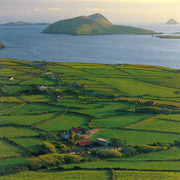
“The visiting scholars fell in love with the life there. They found something they didn’t expect— a simple life deeply appealing to them."
An ensemble biography
Of his forthcoming book, Kanigel says, "It's a kind of ensemble biography...about a clash of culture, with heroes and heroines among both the islanders and the visitors. It’s about love, language, and a culture rich in folklore, poetry, and verbal play."
“Today the world is moving very fast,” Kanigel continues, “There’s been a replacement of physical things with evanescent things—images on the screen. The kind of relationships we have are changing. Here was a culture where everything was face to face.”
What qualities of traditional culture are still appealing?
Yet, even as Kanigel’s story is unfolding, the population of the island is dwindling. Life may be richly shared there, but it takes rough work to make a living, and young people begin to make their lives elsewhere—most of them emigrating to America. None of the scholars chooses to settle on the island, and ultimately, the islanders make the same choice our ancestors made—in favor of modernity.
“Nobody’s going back to live the way these people lived. It was a brutally hard life. But I don’t think that means we 21st century people can’t stop running around for a minute to think back,” Kanigel said. “This is not a prescriptive book. But if my readers came away stopping to think about these issues and reflect back on their own lives, I’d be pleased.”
By 1953, the Great Blasket was abandoned, and today most of the houses on the island lie in ruin. A way of life has passed, but On an Irish Island gives us another chance to contemplate it. Of the islanders, Kanigel said, “After they left, they would say: "I had to leave, but ah, I was happy there.”
On an Irish Island is due in February 2012 from Alfred A. Knopf.
Website | Robert Kanigel
Selected Previous Books
Story prepared by SHASS Communications
Story Editor and Design Director: Emily Hiestand
Writer: Kathryn O'Neill


